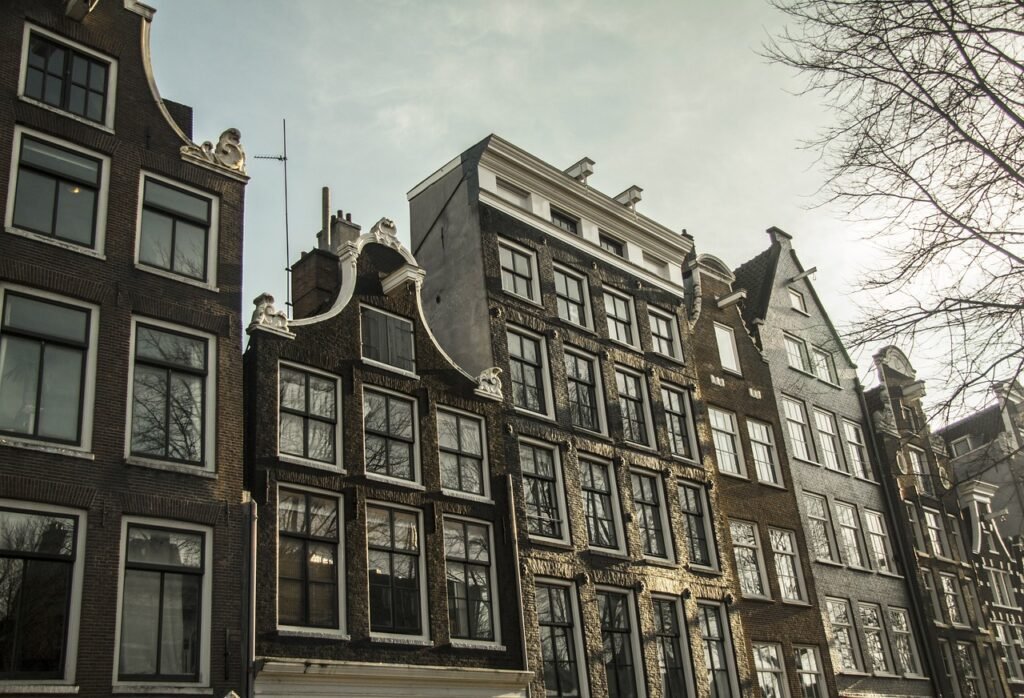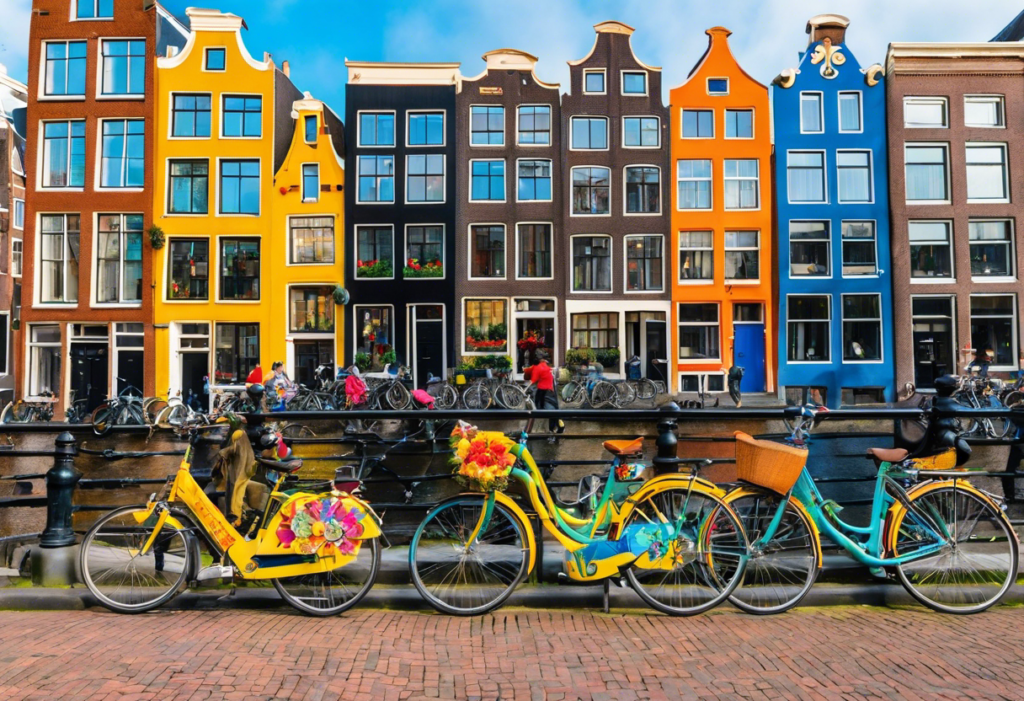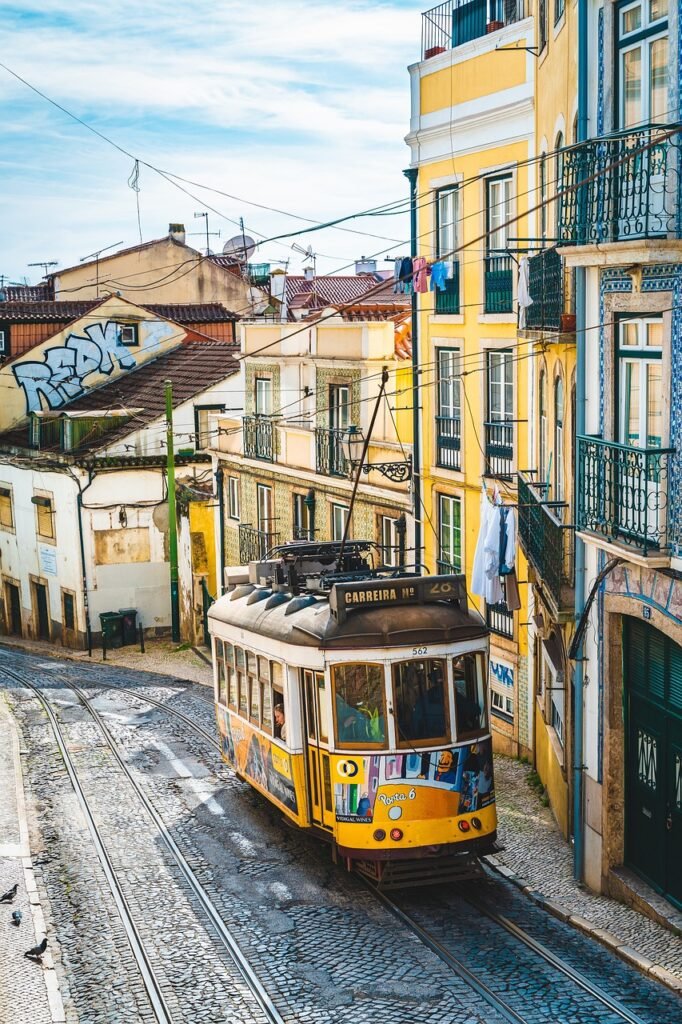
Here’s an overview:
- Introduction: Immersing Yourself in the Heart of Portugal
- Day 1: Getting to Know the City – Lisbon’s Historical Overview Tour
- Day 2: Castles and Pastries – A Day Trip to Belém
- Day 3: Art, Culture, and the Alfama District
- Discovering Alfama’s Historical Gems:
- Exploring Art Venues:
- Experiencing Culture through Activities:
- Day 4: Day Trip to Sintra – Palaces and Enchanted Forests
- Day 5: Exploring the Modern Side of Lisbon – Parque das Nações
- Day 6: The Sunsets of Lisbon – Evening River Cruise and Fado Music Experience
- Day 7: Leisure and Local Life – Enjoy Lisbon at Your Own Pace
- Extra Tips: Getting Around, Local Delicacies, and Souvenir Shopping
- Culminating Your Journey: Reflecting on a Week in Lisbon
Introduction: Immersing Yourself in the Heart of Portugal
Lisbon, Portugal’s coastal capital, is a city steeped in history, culture, and a vibrant contemporary life that spans the narrow streets of its historic neighborhoods to the grand avenues of its modern quarters. An immersion in Lisbon is to experience a tapestry woven with the threads of traditional fado music, emblematic pastel-colored buildings, and the warmth of its people.
While seven days may seem brief, a well-planned itinerary allows travelers the opportunity to delve into the essence of what makes Lisbon truly unique. The city’s topography, marked by its seven hills, offers spectacular views and legions of quaint cafes and eateries from which to soak in its atmosphere.
Those eager to unveil the heart of Portugal will find Lisbon’s authenticity in daily routines: savoring a pastel de nata at a local pastelaria, chatting with artisanal shopkeepers in Baixa, or watching the sunset over the Tagus River from one of the city’s many miradouros. Moreover, the interplay of the ancient and modern is palpable as visitors explore the monuments of Belém alongside the contemporary strokes of the MAAT – Museum of Art, Architecture and Technology.
Engaging with Lisbon means not only sightseeing but also participating in the rhythm of the city. Whether embarking on a guided tour deep into the Alfama district, joining a cooking workshop to learn the secrets of Portuguese cuisine, or taking a day trip to the nearby fairy-tale town of Sintra, each activity paints part of a larger portrait of this enchanting city.
For the travelers ready to embark on this journey, Lisbon unfolds its narratives and beckons to be discovered—one day, one experience at a time.
Day 1: Getting to Know the City – Lisbon’s Historical Overview Tour
Embracing its seven hills overlooking the Rio Tejo, Lisbon, the capital of Portugal, is a city rich with history and cultural diversity. Day one is dedicated to acquainting oneself with the essence of Lisbon through a historical overview tour. Visitors will embark on a journey through time, meandering through the cobbled lanes and wide piazzas where the narratives of explorers, poets, and revolutionaries intertwine.
The tour typically begins at the heart of Lisbon’s historical district, Alfama. This area is known for its labyrinthine streets and is home to some of the city’s most treasured landmarks, including the imposing Castelo de São Jorge, which offers panoramic views of the city.
- Torre de Belém and Mosteiro dos Jerónimos are quintessential to Lisbon’s discovery-era history, symbolizing the Age of Discoveries when Portuguese explorers set off to chart unknown waters. Both UNESCO World Heritage Sites, these monuments paint a picture of Lisbon’s golden age in the 15th and 16th centuries.
Next, visitors will discover the magnitude of Praça do Comércio, a grand waterfront square that was the location of the old royal palace before it was destroyed by the great earthquake of 1755.
- Chiado is another notable stop—it’s a bustling district known as the cultural and literary hub of Lisbon, with historical cafés, theatres, and bookshops.
The tour would not be complete without an exploration of Baixa, the downtown area rebuilt after the earthquake. It showcases a grid of neoclassical architecture designed by the Marquis of Pombal, reflecting the Enlightenment’s influence on urban planning.
Ending the day, visitors often ride the iconic number 28 tram, which weaves through major tourist sites and offers an authentic glimpse of daily life in Lisbon.
Each historical site visited offers travelers a narrative thread, which, when woven together, provides a vibrant tapestry illuminating Lisbon’s past and present. This tour sets the context for a deeper exploration of the city’s distinct neighborhoods and cultural offerings over the following six days.
Day 2: Castles and Pastries – A Day Trip to Belém
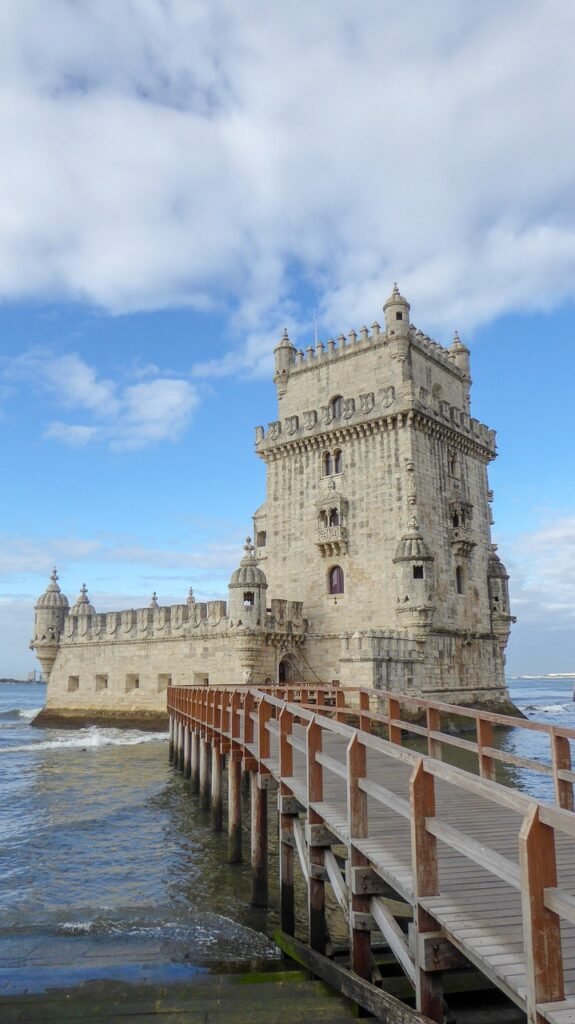
On the second day in Lisbon, travelers are advised to take a scenic journey to the historic district of Belém, renowned for its grand monuments and rich maritime heritage.
- Morning Visit to Jerónimos Monastery The day begins with an exploration of the World Heritage-listed Jerónimos Monastery, a masterpiece of Manueline architecture. Visitors will marvel at the monastery’s ornate cloisters and the tomb of Vasco da Gama, a testament to Portugal’s Age of Discoveries.
- Discovering the Tower of Belém A short walk along the Tagus River leads to the iconic Tower of Belém. This fortification symbolizes the voyages that departed from here to explore and trade with the world. Guests should climb the tower to enjoy panoramic views of the river and the 25 de Abril Bridge.
- Cultural Insights at the Monument to the Discoveries Not far from the tower, the imposing Monument to the Discoveries pays homage to Portugal’s navigators. Here, visitors receive a visual history lesson about the explorers who set sail to chart unknown parts of the globe.
- Afternoon Treat at Antiga Confeitaria After a morning of history, the Antiga Confeitaria de Belém offers a sweet interlude with its famous pastéis de nata. Those with a sweet tooth will delight in these traditional Portuguese pastries, best enjoyed with a dusting of cinnamon and powdered sugar.
- Exploring the Belém Cultural Center Those with lingering cultural interests can conclude their day at the Belém Cultural Center. The center hosts changing art exhibitions, concerts, and conferences, providing a modern complement to the historical outings of the day.
Visitors can easily spend a full day absorbing Belém’s multifaceted allure, with its rich tapestry of history, culture, and local flavors, all readily accessible from Lisbon’s heart.
Day 3: Art, Culture, and the Alfama District
On the third day in Lisbon, visitors immerse themselves in the rich tapestry of art and culture woven through the Alfama district. This historic area is a living museum, characterized by narrow cobblestone streets and traditional Fado music echoing from the taverns.
Discovering Alfama’s Historical Gems:
- São Jorge Castle: The day begins with a journey back in time at the majestic São Jorge Castle, offering panoramic views of the city.
- Lisbon Cathedral: A visit to the imposing Lisbon Cathedral, a mix of architectural styles, reveals centuries of history.
- The Pantheon: The National Pantheon, with its white dome, stands as a monument to Portugal’s greatest figures.
Exploring Art Venues:
- Azulejo Museum: Art enthusiasts delve into the world of Portuguese tiles at the Azulejo Museum, showcasing a collection that spans five centuries.
- Fado Museum: The Fado Museum celebrates Portugal’s soulful music genre and its history in the neighborhood where it first resonated.
Experiencing Culture through Activities:
- Tram 28: Hop on the historic Tram 28 for an authentic ride through the twists and turns of Alfama.
- Local Markets: Stroll the local markets to savor delicacies and crafts, highlighting Lisbon’s vibrant culture.
- Fado Performance: As evening falls, cap off the day with a hauntingly beautiful Fado performance in one of Alfama’s intimate venues.
Every turn in Alfama brings another quaint shop or historic site into view, ensuring that art and culture enthusiasts are continually enlivened by the district’s enchanting atmosphere.
Day 4: Day Trip to Sintra – Palaces and Enchanted Forests
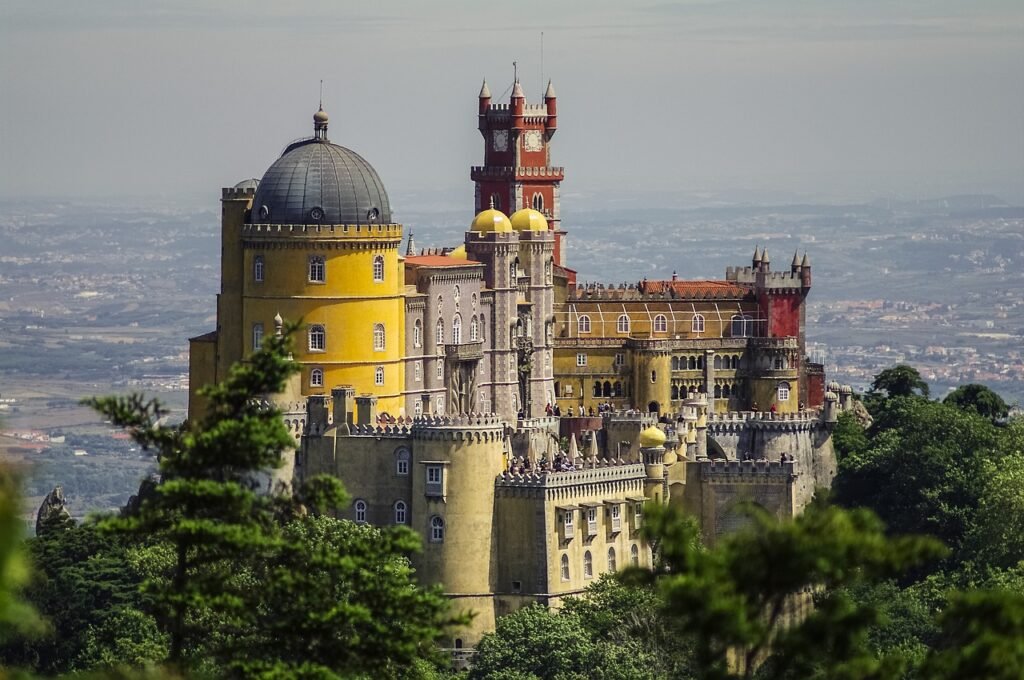
Embarking on the fourth day of the Lisbon adventure, travelers find themselves stepping into a fairytale with a day trip to the captivating town of Sintra. Nestled amidst the Sintra Mountains, this UNESCO World Heritage Site is renowned for its romantic 19th-century architecture and lush landscapes.
- Morning: Start by taking the early morning train from Rossio Station in Lisbon to Sintra. The journey is approximately 40 minutes. Upon arrival, begin the day with the majestic Palácio Nacional de Sintra. This palace is distinguished by its dual conical chimneys and extensive collection of Moorish azulejos.
- Midday: Next, venture to the magical Quinta da Regaleira, a grand house surrounded by an enchanting garden. It’s a labyrinth of grottoes, fountains, and the famous Initiation Wells, which begs to be explored.
- Afternoon: After a lunch break at one of Sintra’s charming cafes, proceed to the Pena Palace. This colorful Romanticist castle stands atop a hill in the Sintra Mountains. Its vibrant façade contrasts with the verdant surroundings, offering a panoramic view over the landscape. Spare some time to stroll through the Pena Park that surrounds the palace with a variety of trees and exotic plants.
- Evening: Before heading back to Lisbon, make a last stop at the Moorish Castle. The crumbling battlements and ancient structures provide a spectacular sunset view, with the sweeping coastline stretching into the horizon.
Remember to wear comfortable walking shoes, as Sintra’s hilly terrain and cobblestone paths call for considerable walking. Additionally, purchasing a Sintra Pass may be beneficial for unlimited travel between sights and discounts on entrance fees. This day trip is sure to be a highlight, immersing travelers in the lore and grandeur of Sintra’s illustrious past.
Day 5: Exploring the Modern Side of Lisbon – Parque das Nações
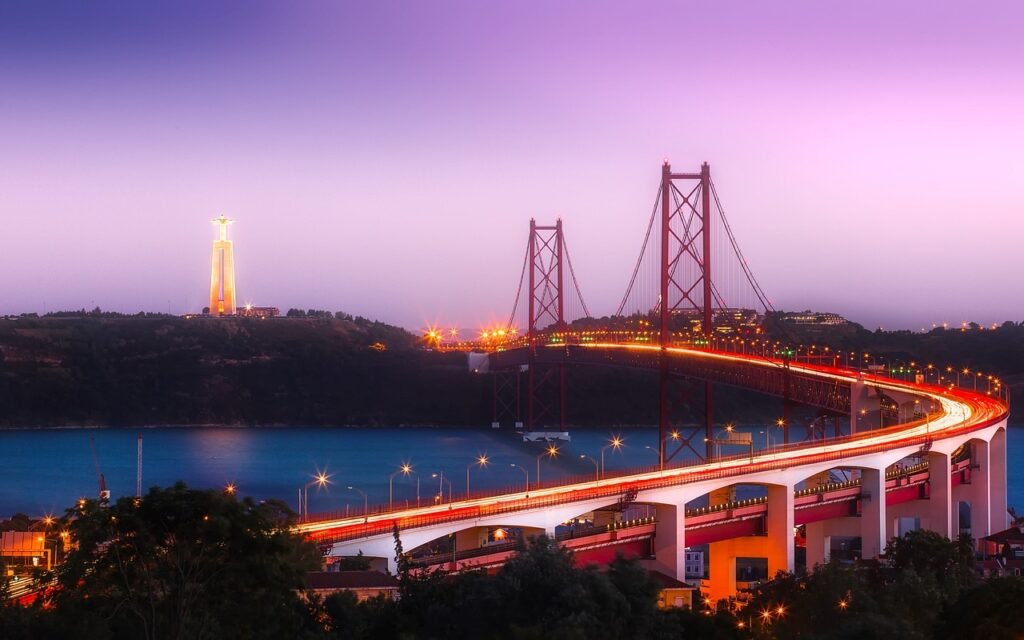
On day five, visitors will leave behind Lisbon’s historical charm to embrace its contemporary flair at Parque das Nações. This locale, originally developed for the 1998 Lisbon World Exposition, stands as a testament to modern urban planning and architecture.
- Begin by riding the sleek cable cars for panoramic views of the Tejo River and the Vasco da Gama Bridge, Europe’s longest.
- Visit the Oceanário de Lisboa, one of the world’s largest aquariums, to encounter a diverse array of marine life. This oceanarium is ingeniously designed, allowing visitors to feel submerged in the underwater world.
- Stroll along the riverside promenade, breathing in the fresh breeze and enjoying the open green spaces that Parque das Nações offers.
- For a dose of science and knowledge, head over to the Pavilhão do Conhecimento, an interactive science museum perfect for families.
- Engage in retail therapy or dine out at the Vasco da Gama Shopping Center, which houses a variety of international brands and eateries.
Sports enthusiasts can swing by the Altice Arena or the Lisbon Casino, where events, concerts, and shows are routinely hosted. While Parque das Nações represents the forward-looking spirit of Lisbon, it also maintains a respect for the environment, evident from the eco-friendly buildings and the use of renewable energy sources throughout the district. Day five of the Lisbon journey thus offers a refreshing shift, presenting a blend of leisure, culture, and modern innovation.
Day 6: The Sunsets of Lisbon – Evening River Cruise and Fado Music Experience
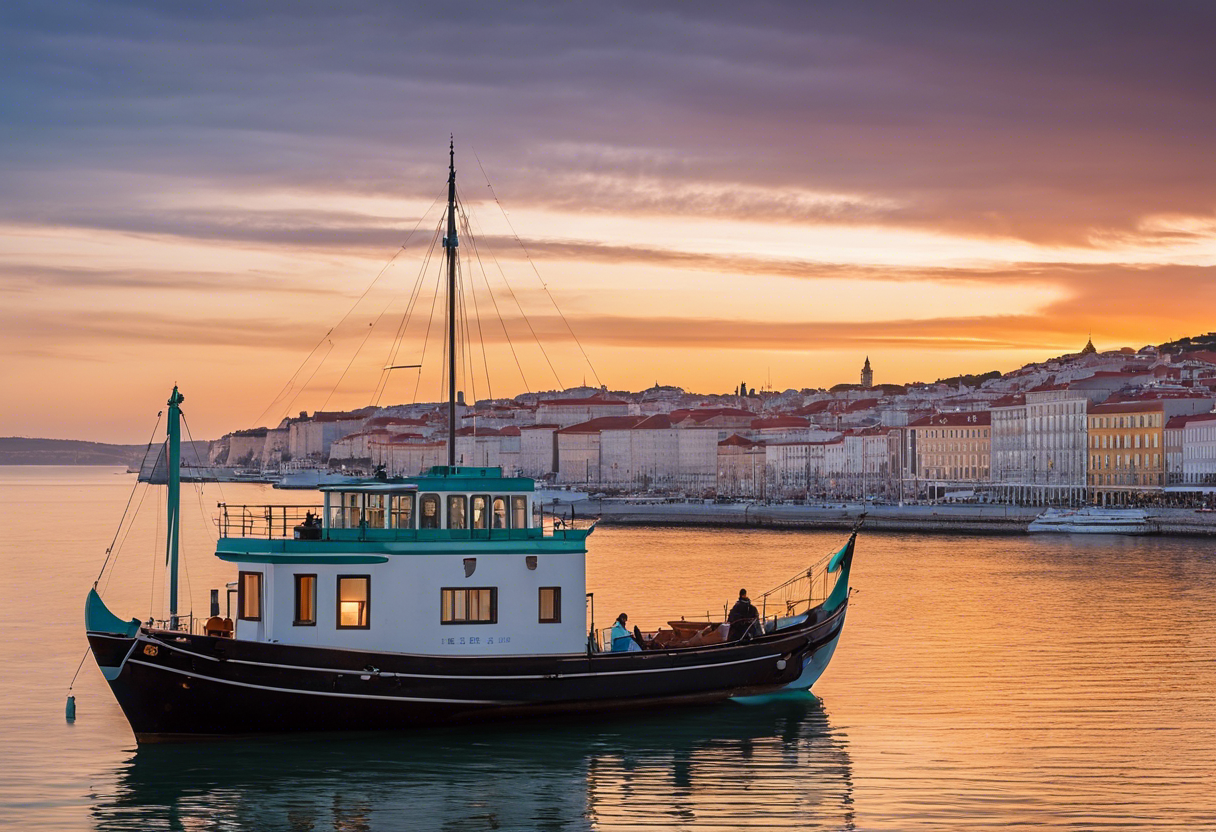
By the sixth day, visitors will have explored much of Lisbon’s vibrant cityscape. As evening sets in, they have the chance to witness the city from a unique perspective — aboard a river cruise on the Tagus. The golden hour casts a soft glow over the city’s monuments, and the 25 de Abril Bridge is a sight to behold against the reddening sky. The river cruise offers a serene experience, gliding along the water as the city transitions from day to night.
While on the river cruise, guests can savor refreshments and observe Lisbon’s most emblematic monuments bathed in the warm hues of sunset. The Jerónimos Monastery and Belém Tower, both UNESCO World Heritage Sites, take on a mystical quality in the fading light.
After the cruise, it’s time to delve into Portugal’s soulful Fado music. Fado, a traditional form of Portuguese singing that’s rich in emotion and often reflective of the melancholic sea, is best experienced in Lisbon’s historic neighborhoods. Alfama, with its winding streets and Fado houses, is the perfect locale for this musical journey. Visitors can enjoy a typical Portuguese dinner at a Fado restaurant, where the plaintive melodies of Fado are complemented by authentic local dishes. The performance, infused with saudade — the untranslatable Portuguese term for a deep, nostalgic longing — promises to be an unforgettable part of the visit.
The combination of a peaceful river cruise and an emotive Fado performance encapsulates the charm and essence of Lisbon, providing an evening of relaxation and cultural enrichment that will linger in the memory long after the trip concludes.
Day 7: Leisure and Local Life – Enjoy Lisbon at Your Own Pace
After six days of immersive sightseeing and engaging activities, the seventh day in Lisbon is a time to slow down and savor the city’s offerings more leisurely. This day is intentionally reserved to let visitors explore the vibrant Portuguese capital at their own rhythm, perhaps uncovering hidden gems and experiencing local life beyond the guidebooks.
- Begin the morning with a casual stroll down the historic streets of Alfama. Without the pressure of a strict itinerary, one has the luxury to appreciate the intricate details of traditional Portuguese tiles (‘azulejos’) that adorn many buildings.
- Visit one of the local mercados (markets), such as Mercado de Campo de Ourique. Here, travelers can mix with Lisbon’s residents, shop for fresh produce, and sample a variety of authentic Portuguese dishes under one roof.
- Take a leisurely bike ride or a scooter tour along the Tagus River. The riverside offers an extensive path that provides a scenic and relaxed way to see different parts of the city.
- Head to Parque Eduardo VII for a midday picnic. This centrally located park boasts lush greenery and spectacular views over the city.
- Spend the afternoon exploring one of Lisbon’s many museums or art galleries. The Museu Nacional de Arte Antiga or the Berardo Collection Museum are both excellent choices for art enthusiasts.
- As the evening approaches, join the locals in one of Lisbon’s bairro’s (neighborhoods) for dinner. Opt for a neighborhood tasca (tavern), where one can enjoy homestyle Portuguese cooking. Try the popular dishes like bacalhau à brás (cod with potatoes and eggs) or sardinhas asadas (grilled sardines).
The final day is the opportunity to embrace the Lisbon lifestyle, taking in the sights, sounds, and flavors of the city in a relaxed and unhurried manner. Enjoy the charm and warmth of Lisbon as the journey comes to a close, storing memories of a well-spent week exploring one of Europe’s most enchanting capitals.
Extra Tips: Getting Around, Local Delicacies, and Souvenir Shopping
Travelers revel in the ease of navigating Lisbon with its variety of transportation options. For the scenic route, one can hop on the iconic Tram 28, which meanders through the historic districts of Graça, Alfama, Baixa, and Bairro Alto. For efficiency, the Lisbon Metro is clean, fast, and reaches most parts of the city. Taxis and rideshare options like Uber are widely available, but for a unique experience, consider renting a bike or scooter to explore the city’s picturesque streets up close.
Lisbon’s culinary landscape tantalizes the taste buds with its rich array of local delicacies:
- Pastéis de Nata: These creamy custard tarts are a Portuguese staple and a must-try at the renowned Pastéis de Belém.
- Bacalhau: A classic cod dish prepared in countless ways, but the “à Brás” style, featuring shredded fish with onions, straw fries, and scrambled eggs, is particularly delightful.
- Sardines: Often grilled, these are especially popular during the Feast of St. Anthony in June.
For souvenirs:
- A Vida Portuguesa: This shop specializes in traditional Portuguese products, from handmade soaps to cork accessories.
- Luvaria Ulisses: A boutique glove shop in Chiado offering beautifully crafted leather gloves.
- Feira da Ladra: Lisbon’s flea market is the perfect hunting ground for vintage finds, ceramics, and unique handmade items to bring home.
Immerse yourself in local culture by savoring the food and bringing home mementos that hold the essence of Lisbon.
Culminating Your Journey: Reflecting on a Week in Lisbon
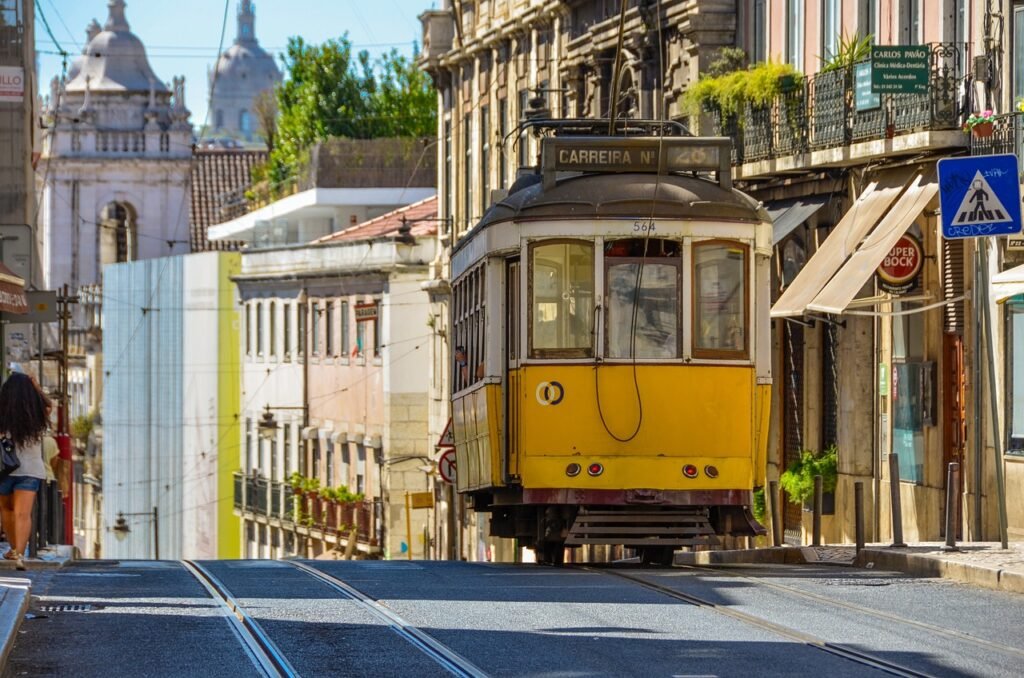
As travelers prepare to bid adeus to the vibrant city of Lisbon, it is opportune to pause and reflect on the week-long sojourn in this Portuguese gem. The exploration of Lisbon is not just a journey through its streets, but an immersion in a culture that’s rich with history, charisma, and culinary delight.
One may recount the day spent meandering through the historic quarters of Alfama and Bairro Alto, where the melodic strains of Fado music still resonate in the heart long after the sounds have faded away. Visits to the towering Belem Tower and the majestic Jeronimos Monastery surely stand as highlights, offering insights into Portugal’s Age of Discoveries.
Lisbon’s modern side is equally captivating. The travelers might reflect on their experiences in the Parque das Nações, which showcases contemporary architecture and the expansive Oceanário de Lisboa, solidifying the city’s connection to the sea. Additionally, the myriad sensory delights of visits to the Time Out Market and tastes of pastéis de nata may just linger on as fond gastronomic memories.
Amid the week, there was the undulating terrain, conquered aboard iconic yellow trams, and the breathtaking views from Miradouros that offered moments of introspection and tranquility within the bustling city life. One cannot help but reminisce about the sundown scenes at the São Jorge Castle, where the sprawling cityscape lay bathed in golden hues.
Lastly, the interlude into the prolific cultural scene with experiences of contemporary art collections at MAAT or ancient masterpieces at Museu Calouste Gulbenkian might ignite a newfound appreciation for Portuguese artistry.
Farewell to Lisbon doesn’t mean the end; it is the inception of a lifelong connection with the city one has woven into their tapestry of travel experiences. Each visitor departs with a unique narrative, woven from the threads of Lisbon’s eclectic charm and the shared moments within its embrace.

